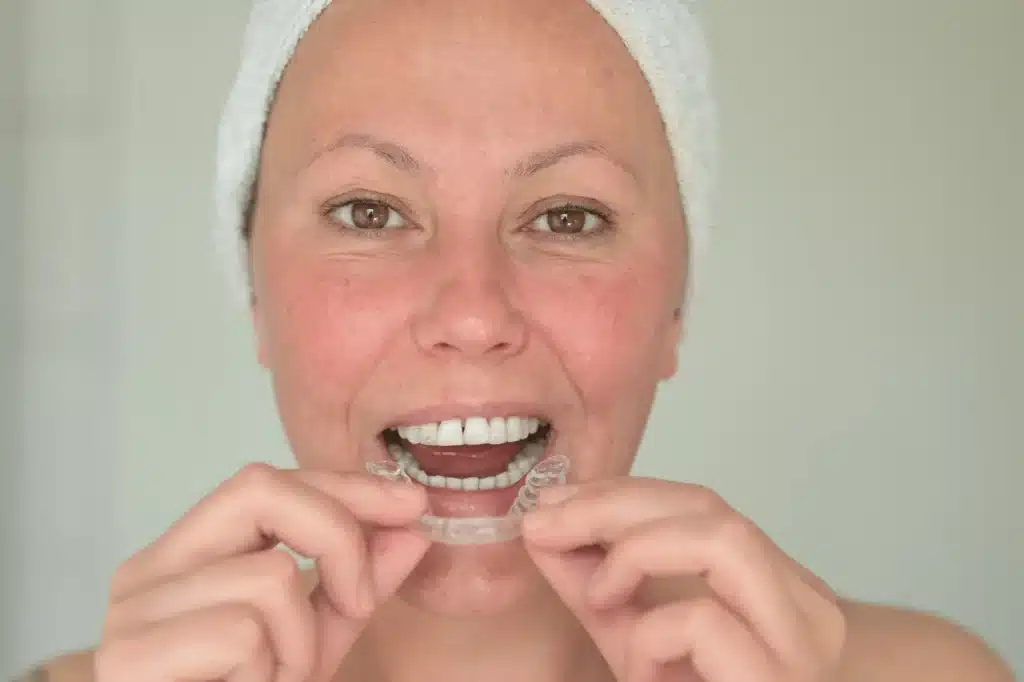Bruxism can cause severe damage to your teeth and jaws. Learn some of the best treatments for bruxism to protect teeth from damage.
Diagnosis
Your dentist usually looks for signs of bruxism when you have a regular dental checkup.
Evaluation
If there are any signs, your dentist will continue to monitor your teeth and mouth in the following visits to see if the problem is worsening and if you need treatment.
Finding the Cause
Before going on treatments for bruxism, finding the root cause is essential. If your dentist thinks you might have bruxism, they will ask questions about your dental health, medications, daily routines, and sleep habits to determine what might be causing it.
To see how severe your bruxism is, your dentist may look for:
- Tenderness in your jaw muscles.
- Clear dental issues, like broken or missing teeth.
- Other damage to your teeth, the bone beneath them, and the inside of your cheeks, often with the help of X-rays.
During a dental exam, they may also check for other problems that could lead to similar jaw or ear pain, like temporomandibular joint (TMJ) disorders, other dental problems, or general health conditions.
Dental Approaches
If you or your child has bruxism, your dentist may recommend treatments for bruxism to protect or improve your teeth. While these methods can prevent or fix tooth wear, they might not completely stop the teeth grinding. Here are some dental treatments for bruxism:
Splints and Mouth Guards: These are designed to keep your teeth apart and prevent damage from clenching and grinding. They can be made from hard acrylic or soft materials and fit over your upper or lower teeth.

Dental Correction: In severe cases, when tooth wear causes sensitivity or difficulty chewing, your dentist might need to reshape the chewing surfaces of your teeth or use crowns to repair the damage.
Other Approaches
You can try one or more of these approaches as treatments for bruxism:
- Stress and Anxiety Management: If stress is the cause of your teeth grinding, you might prevent it by learning relaxation techniques like meditation. If anxiety is the issue, advice from a licensed therapist or counselor can be beneficial.
- Behavior Change: Once you realize bruxism, you can change the habit by practicing the correct mouth and jaw position. Ask your dentist to show you the best position for your mouth and jaw.
- Biofeedback: If you find it hard to change your habits, biofeedback can be helpful. It’s a method that uses monitoring techniques and equipment to teach you how to control the muscle activity in your jaw.
Medications
In general, medicines are ineffective for treating bruxism, and we need more research to ensure how well they work. Some examples of medication treatments for bruxism that might be used for bruxism include:
Muscle Relaxants: Sometimes, your doctor might suggest taking a muscle relaxant before bedtime, but only briefly.
Botox Injections: These are shots of Botox, a botulinum toxin. They could help people with severe bruxism who don’t get better with other treatments.
Medication for Anxiety or Stress: Your doctor might recommend using antidepressants or anti-anxiety medications for a short period to help with stress or other emotional problems that might be causing your bruxism.

Treating Related Issues
Dealing with other problems may involve:
- Medications: If you develop bruxism as a side effect of a medicine, your doctor may change your medication or give you a different one.
- Sleep-Related Disorders: Fixing sleep-related problems like sleep apnea could help with bruxism.
- Medical Conditions: If an underlying medical issue like acid reflux disease (GERD) is causing the bruxism, treating that condition might also help with the teeth grinding.
Conclusion
The blog guides you on the treatments for bruxism to help protect your teeth. Always consult your dentist for treatment options and choose what suits you best. Contact Dentalsway for more information on bruxism. We are here to help you protect your dental health.


